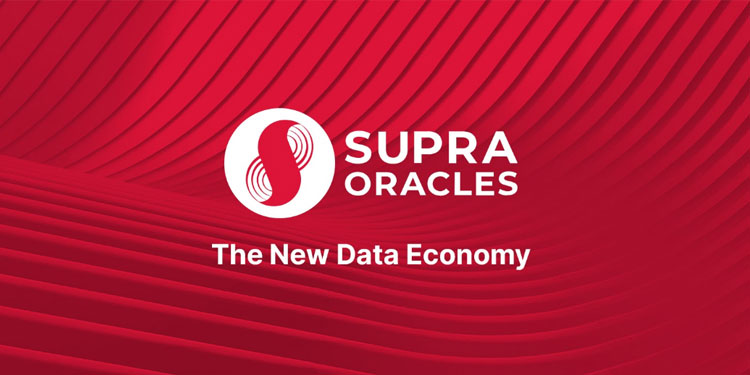The data economy is massive already, worth around $43.2 billion in 2018 and now estimated to have at least doubled in size. Around the same time in 2018, DeFi (Decentralized Finance) was first introduced — which quickly became a powerful and prominent industry that relied on the data economy.
Many DeFi projects require off-chain data to feed in important information and help run and power their applications. In the crypto sphere, this data is provided through third-party services, called oracles. Existing oracles have withstood the test of time, but this is primarily because they are an essential part of this ecosystem, not because they are foolproof. These solutions face many obstacles that remain unaddressed, such as slow speeds, a lack of security, and inaccuracies.
What is an Oracle?
Today’s oracles are programs that send data from the real world onto the blockchain, providing useful information that’s otherwise unobtainable in the crypto ecosystem. Blockchains are closed systems, incapable of accessing data off-chain. Therefore, bridging the gap between the blockchain and the real world is an essential step to enhance dApps’ (decentralized application) use cases. Oracles are the means to provide this key data and information, such as temperatures, sports games, live scores, stocks, chart changes, and more, all happening in real-time.
This data affects blockchain users in numerous ways and can cause great financial gains or losses, depending on the information shared. This is why oracles must be fast, precise, and accurate.
Due to the important role that oracles play in a blockchain ecosystem, more oracle solutions have been popping up left and right, such as Chainlink and Band Protocol. But, a phenomenon called the “Oracle Problem” also arose. In simple terms, this problem is a dilemma between security, decentralization, speed, and finality. Often, this leads to a chink in the decentralization of a blockchain or dApp due to reliance on a centralized oracle. This poses a threat to the current infrastructure surrounding blockchain technology. Many developers have worked around the clock to find a solution, but haven’t been able to solve the puzzle of connecting old, centralized systems and their data to a new decentralized system — in a decentralized manner.
Luckily, a new project, named SupraOracles, has found a way to build the underlying framework and infrastructure to fix this issue and forever revolutionize oracles.
SupraOracles: Solving the Oracle Dilemma
Traditional oracles are largely centralized and provide a relatively valuable bridge between real-world data and the blockchain. Still, most users aren’t satisfied with centralized solutions; they can be unsafe, unreliable, and experience difficulty when scaling.
SupraOracles provides the answer to these problems with its advanced technological solution. Their oracle is fast, accurate, fully decentralized, and far more affordable than any other competitor on the market.
Joshua D. Tobkin and Jon Jones, the Co-founders of the project, created this improved oracle solution to elevate the entire industry. Their oracle solution relies on three key features to revolutionize the new data economy: Parallel processing, threshold cryptography, and random sampling. Ultimately, this provides improved scalability, faster-operating speeds, nearly immediate data updates, more affordable prices, stronger security protocols, and enhanced precision.
Implications for End Users
Oracles are necessary for practically every DeFi protocol on the market these days. For example, blockchain gaming economies rely deeply on information from the real world. This information can change in seconds, and directly affects the entire blockchain ecosystem and its users. Therefore, reliable, fast, and accurate oracles are absolutely essential, cementing SupraOracles’ value and prospects in the industry.
With the highly financial use of blockchain, crypto enthusiasts and investors are at risk of potential financial swings and misinformation without a reliable oracle. The cryptocurrency market is worth over $1.6 billion at the time of writing, no small matter, and one that demands flawless and seamless oracle services. Chainlink, one of the most popular oracle services, provides a refresh rate of around two minutes. This can be devastating in the fast-paced crypto market and pales in comparison to the 3-5 second speed that SupraOracles aims to provide.
Another critical issue that concerns DeFi users and oracle services is the threat of hacking and potential cyberattacks. Various hackers facilitated virtual attacks and managed to alter the on-chain information by targeting various oracles. Hackers used this method to make a fortune and run away with tens of millions of dollars in recent years. This still remains a very real and relevant issue, posing a huge threat to the adoption of crypto and security within the industry.
With SupraOracles’ threshold cryptography, end-users can now rest assured that hacking will be less frequent. The encryption provided by SupraOracles is thousands of times stronger than its competition, preventing hackers from creating this type of large-scale damage.
Conclusion
SupraOracles’ key message is, “We’re supercharging oracles for a better, decentralized future.” That’s exactly what the DeFi industry needs right now. Every solution on the market simply isn’t up to par. This next-gen, cross-chain solution revolutionizes the way data is managed.
Blockchain projects are innovating better ways to provide services. Oracle solutions need to match this pace, with faster operational speeds, far better security, and cheaper transaction fees.
SupraOracles is setting the bar high for future innovations, working to make DeFi a more reliable and trustworthy industry for everybody.


















